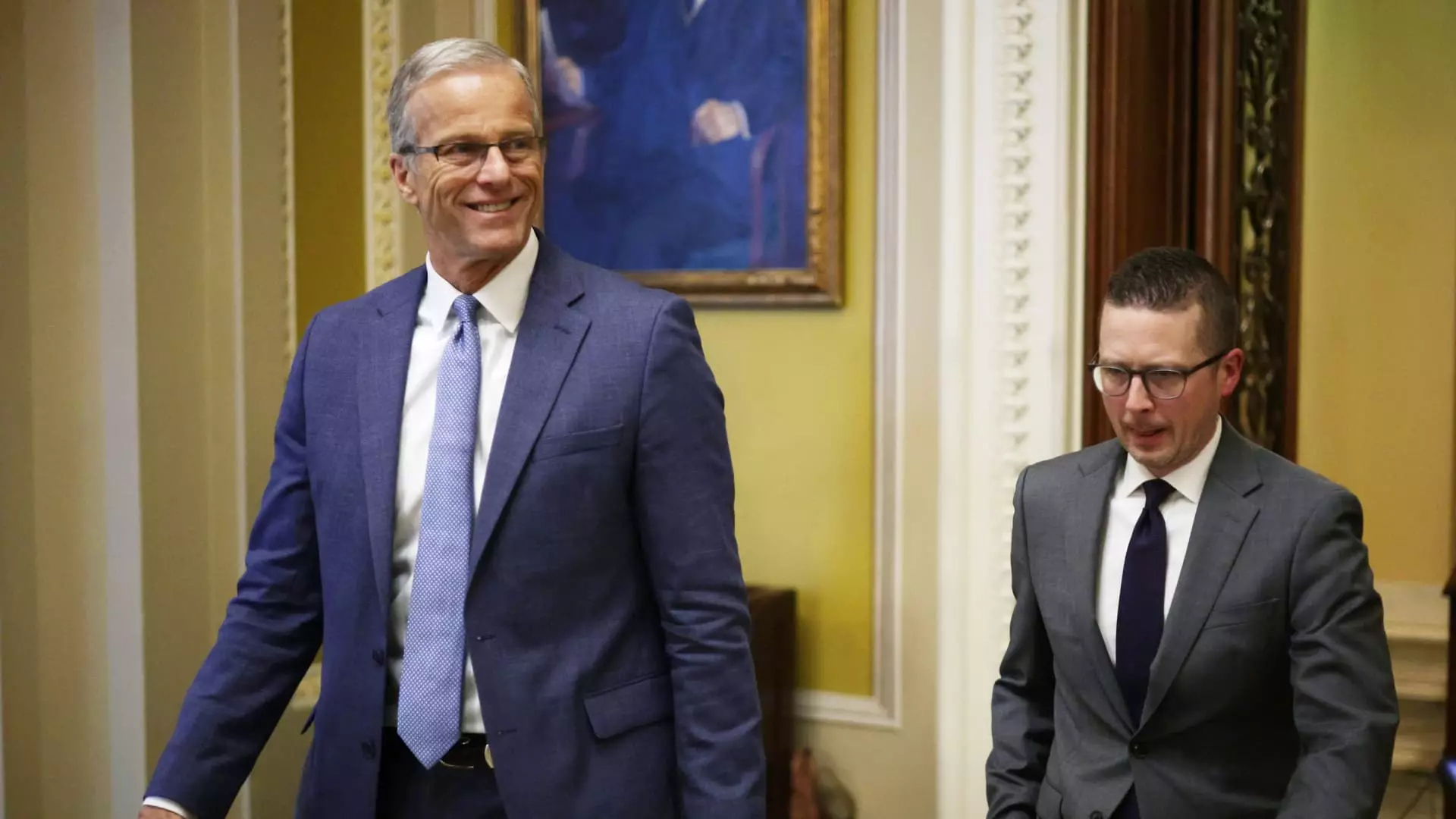The recent passage of President Trump’s sweeping domestic policy package in the Senate was heralded by many as a monumental legislative milestone, but beneath the surface lies a troubling spectacle of partisanship and hurried compromise. While some view this as a step forward, a closer analysis reveals it as a deeply flawed process that prioritizes political theatrics over sustainable policy solutions. The narrow 51-50 vote, with Vice President JD Vance wielding the tie-breaking vote, underscores a fragile consensus that is anything but a firm endorsement of sound governance. This legislation, crafted amid a relentless spectacle of amendment sessions and behind-the-scenes negotiations, risk sacrificing long-term fiscal responsibility for the sake of quick political gains.
The bill’s passage exemplifies a dangerous tendency in modern politics: rushing significant policy decisions under tight deadlines and partisan pressure. The looming July 4 deadline, ostensibly set to symbolize national unity and patriotic fervor, appears more an orchestrated stunt than a reflection of genuine consensus. Such a hurried timetable elevates political expediency over meticulous legislative scrutiny, paving the way for a package that might contain compromises too extreme or too risky to withstand real debate. The spectacle of marathon vote-a-rama sessions, while perhaps showcasing the legislative stamina of senators, ultimately serves as a smokescreen for deeper divisions and unresolved policy dilemmas.
Partisanship, Deficit Spending, and Political Posturing
One of the most glaring issues embedded in this process is the bill’s projected impact on the national deficit. The Congressional Budget Office’s estimates of at least a $3 trillion increase over the next decade are staggering, raising fundamental questions about fiscal responsibility. Yet, despite these warnings, party-line politicking persists, with Republican lawmakers who once expressed concerns about deficit expansion now grudgingly supporting a package that inflates debt further. This inconsistency reveals a politics driven more by ideology and fear of alienating voters than by a sober consideration of long-term economic health.
Furthermore, the bill’s content—such as deeper Medicaid cuts—indicates a prioritization of ideological convictions over pragmatic solutions that could balance fiscal sustainability with social needs. The fact that some GOP senators and House conservatives remain resistant highlights a crucial truth: the legislative process has become increasingly polarized, with compromise often sacrificed on the altar of political purity. This dynamic diminishes the legitimacy of such legislation and undermines trust in what should be a process grounded in responsible governance.
A Flawed Legislative Strategy and a Divided Republican Party
The internal conflicts within the Republican ranks reveal a party struggling to reconcile its conflicting interests. The House, under the fragile leadership of Speaker Mike Johnson, faces an uphill battle to pass this legislation amid a narrow majority and hard-line conservative opposition. Representing the core tension, figures like Rep. Chip Roy openly oppose the bill, criticizing the Senate’s rushed timeline and warning against accepting a package they perceive as inadequate or even harmful. Such dissent underscores a broader ideological rift within the party—a party that claims fiscal conservatism but endorses legislation with questionable fiscal prudence.
On the other hand, Senate GOP leaders celebrate their achievements, yet their success could be short-lived if the bill falters in the House or if further amendments threaten to unravel the compromise. The behind-the-scenes negotiations and amendments that sought to appease hold-outs seem mostly superficial, offering little real change but exposing the deep divisions and opportunism at play. Ultimately, this process exemplifies a government that is increasingly reactive—more concerned with scoring political points and fulfilling rhetoric—rather than constructing resilient policies capable of withstanding scrutiny and serving the nation’s long-term interests.
The Path Forward: A Question of Real Leadership
As the bill now moves to the House, the political calculus becomes even more precarious. The looming July 4 deadline has been weaponized as a symbolic deadline rather than a pragmatic target for effective legislative action. Hardliners and moderates alike are entangled in a battle for influence, with the likelihood of a compromised, watered-down version of the bill growing ever more apparent. The pressure from presidential figures, notably Donald Trump, adds an unpredictable element—his insistence that Congress pass the legislation before the holiday risks turning this into a spectacle of political willpower rather than thoughtful governance.
This entire episode exposes a fundamental flaw in the current legislative process: the prioritization of expediency over policy integrity. It raises urgent questions about the kind of leadership capable of resisting the siren call of quick fixes and populist appeals. Real progress demands patience, clarity, and a willingness to embrace difficult conversations—traits that seem to be increasingly absent in today’s political climate. If policymakers continue to chase deadlines and media headlines instead of addressing core issues with integrity, meaningful reform will remain an elusive ideal, sacrificed in the name of political expediency.


Leave a Reply